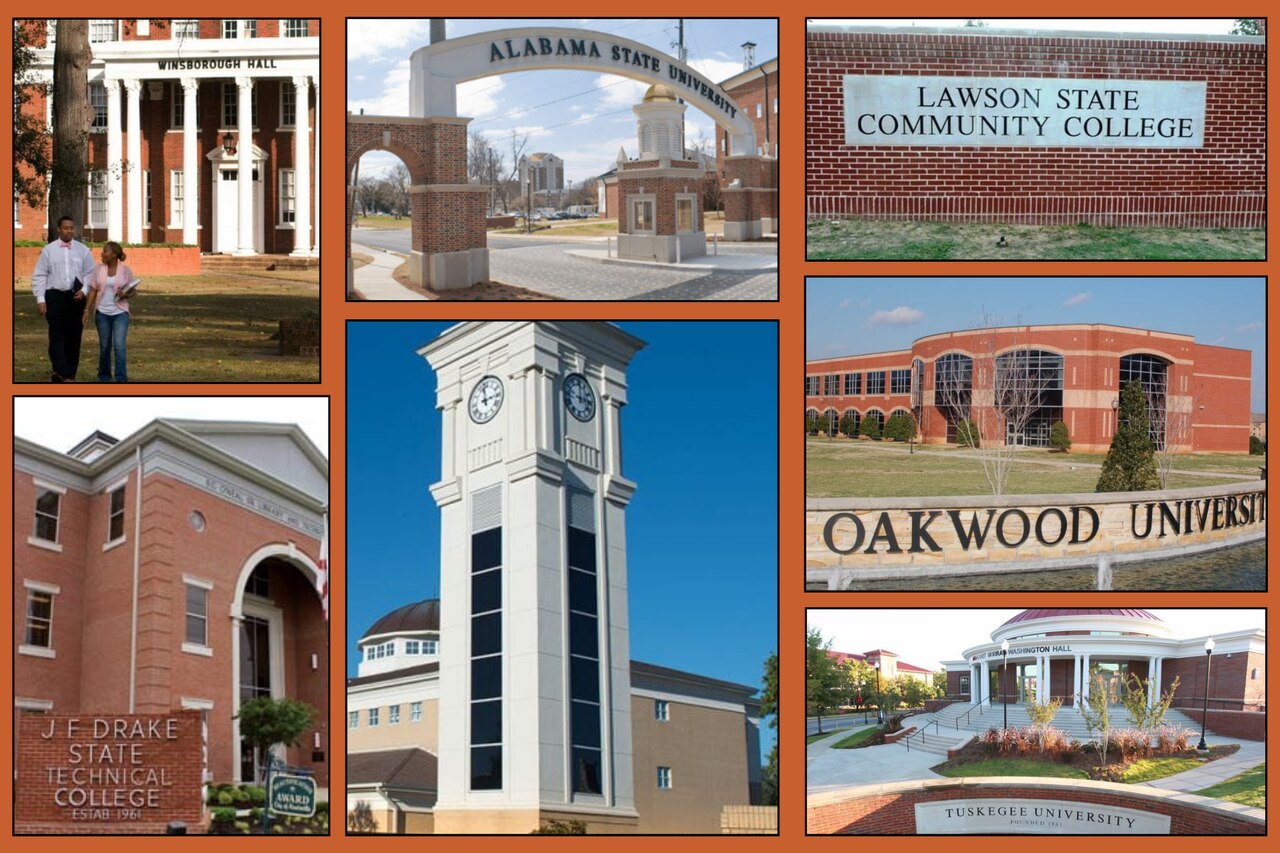Alabama is celebrating HBCU Awareness Month
Gov. Kay Ivey has officially declared October as HBCU Awareness Month for two years in a row. With 14 historically Black schools, Alabama has the most HBCUs nationwide.
Enrollment
In Alabama, HBCUs have contributed more than a billion dollars to the state’s economy in recent years. In 2020, they produced about a quarter, or 3,581, of the state’s 14,667 Black graduates, federal data shows.
Enrollment at Alabama’s HBCUs has declined rapidly over the past decade. However, according to an AL.com analysis, numbers have been on the upswing between 2020 and 2021. HBCU enrollment rose significantly while enrollment statewide stayed flat. Find your school’s enrollment over time in the chart below. See the chart online here.
Among public, four-year HBCUs in Alabama, Alabama A&M University celebrated last spring with a record total of 9,757 accepted freshmen to date for fall 2023. The college beat its own previous record of 9,039 acceptances set in 2019, and beat its freshman enrollment record of 1,694 students (also set in 2019).
Alabama State University saw its enrollment go up 3.7% over the past 12 months, according to data from the Alabama Commission on Higher Education (ACHE). Alabama A&M University increased its enrollment by 10.8% from 2022-2023. And over the past decade has seen a 32.6% jump.
While some Alabama HBCUs are now regular community colleges, others maintain a proud tradition focused on Black education and achievement.
Here are five facts to note about Alabama’s HBCUs:
- With 14 historically Black schools, Alabama has the most HBCUs in-state nationwide.
CAPTION – Campus buildings from seven of Alabama’s 14 HBCUs. From left: Stillman College, Alabama State University, Lawson State Community College, J.F. Drake State Community College, Bishop State Community College, Oakwood University and Tuskegee University. Graphic by Kalyn Dunkins/AL.com.
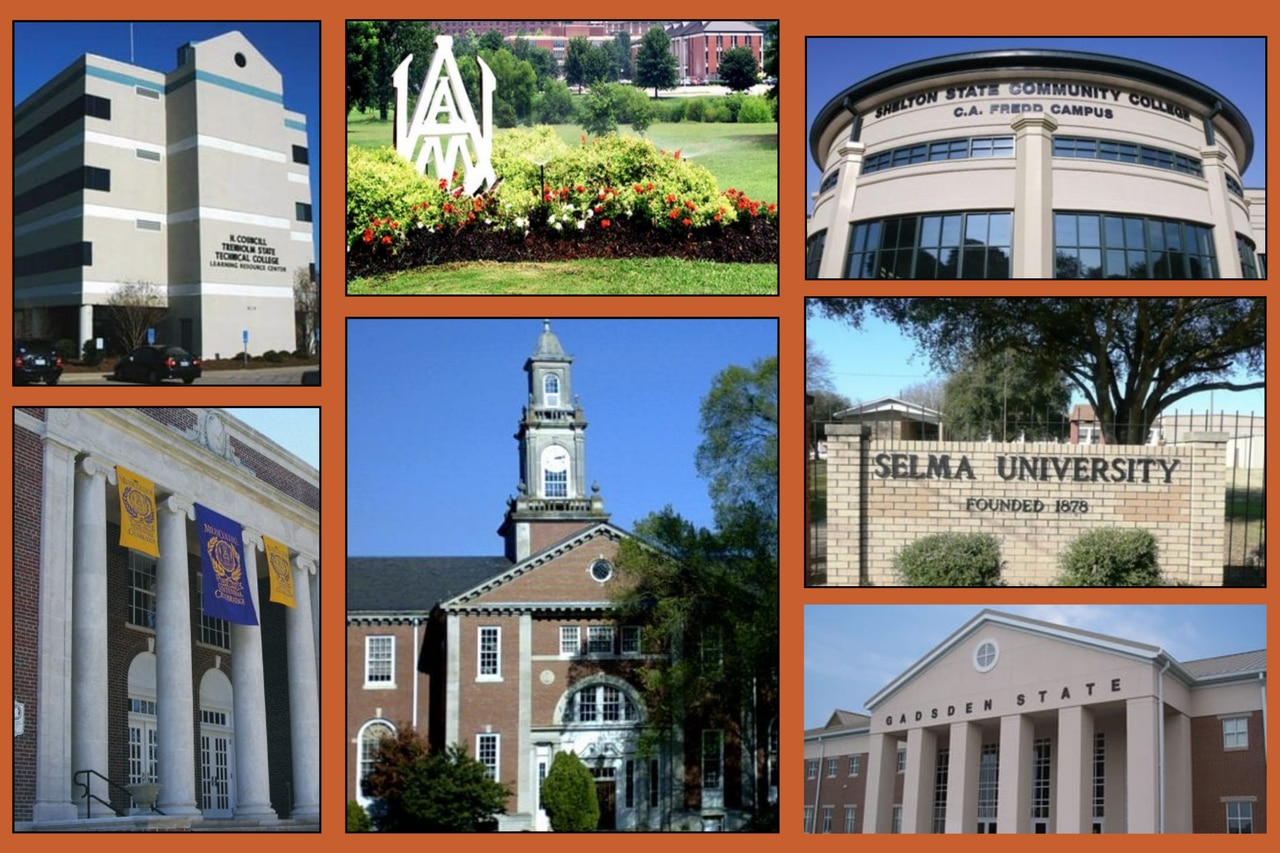
Campus buildings from six of Alabama’s 14 HBCUs. From left: H. Councill Trenholm State Community College, Alabama A&M University, Shelton State Community College, Miles College, Talladega College, Gadsden State Community College and Selma University. Graphic by Kalyn Dunkins/AL.com.
- Talladega College, founded in 1867, is the oldest HBCU in Alabama.
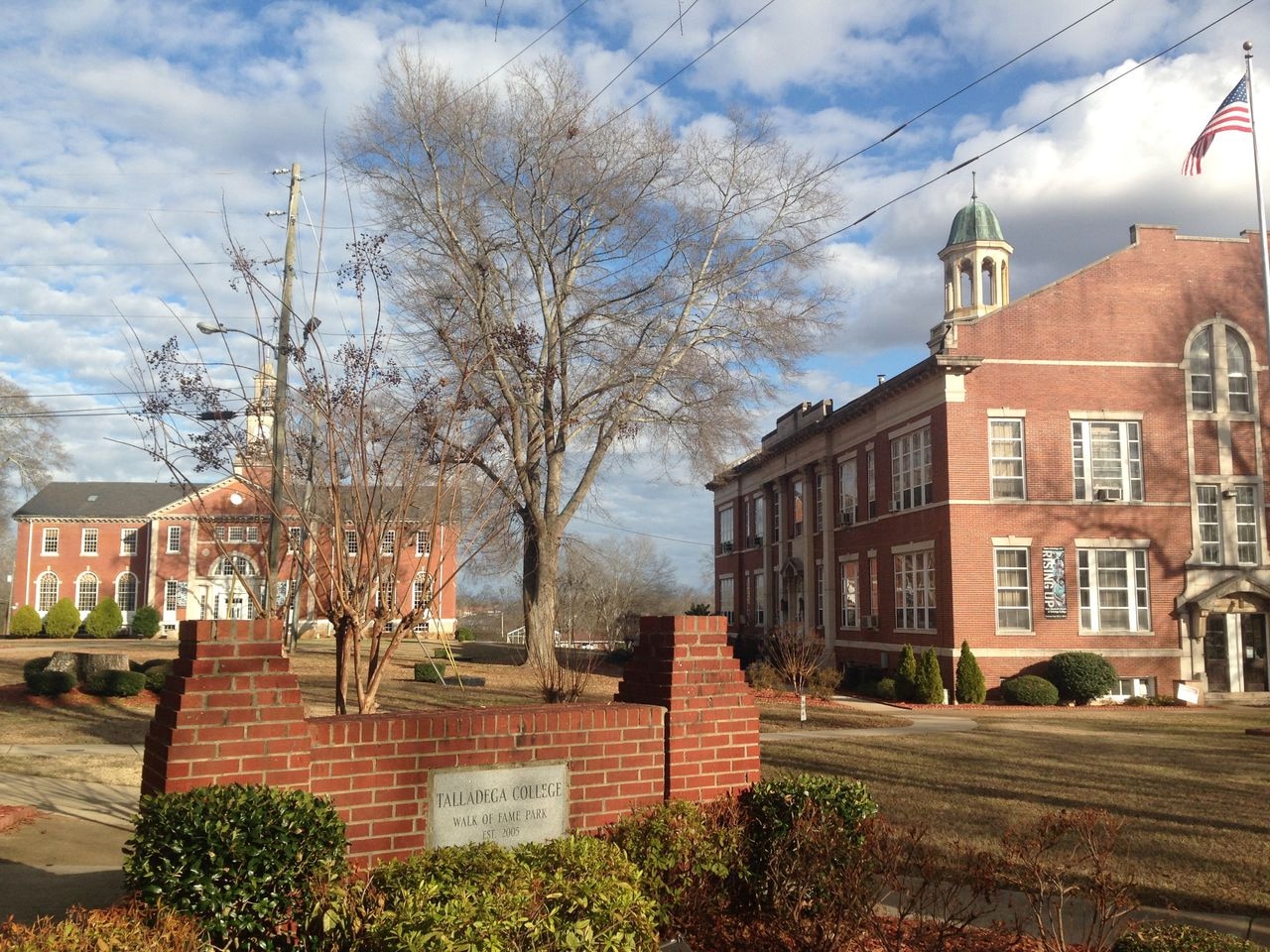
Talladega College is one of the state’s oldest historically black colleges. The school has a marching band, but no football team. (William Thornton/[email protected])
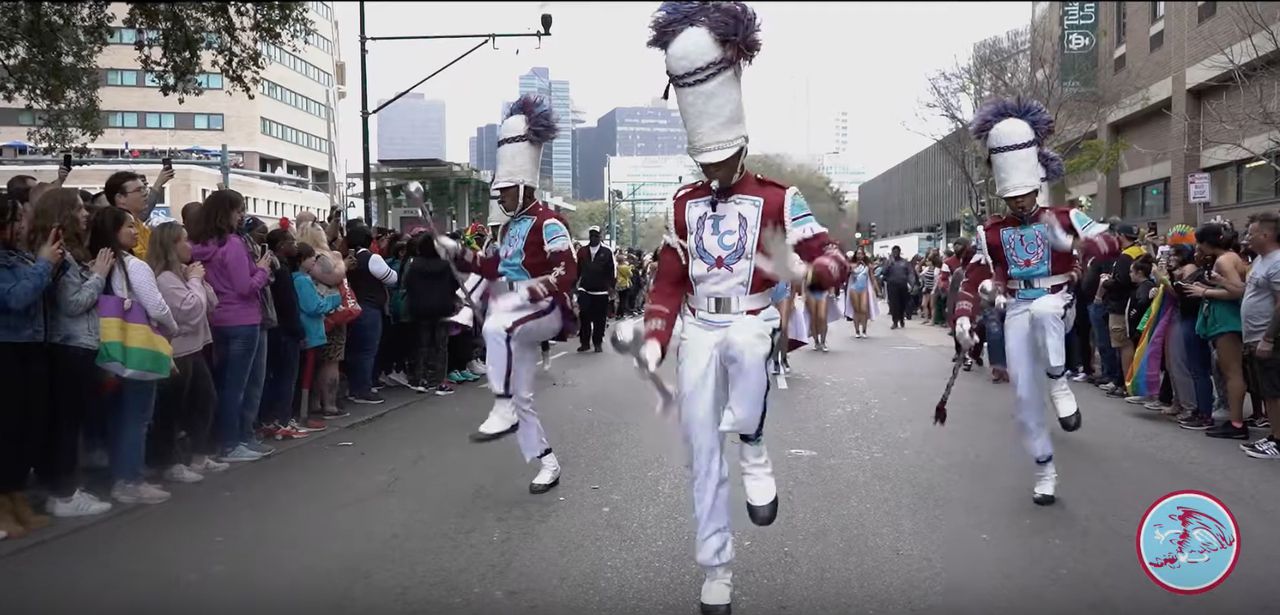
Talladega College’s “Great Tornado” Marching Band caught Janet Jackson’s attention with its Mardi Gras performance of “Velvet Rope” in New Orleans in February 2020. Photo courtesy: Talladega College, video screenshot.(Talladega College video screenshot)
- 3. Alabama A&M University is home to 6,100 students, including undergraduate, graduate, and doctoral candidates, making it the largest HBCU in the state.
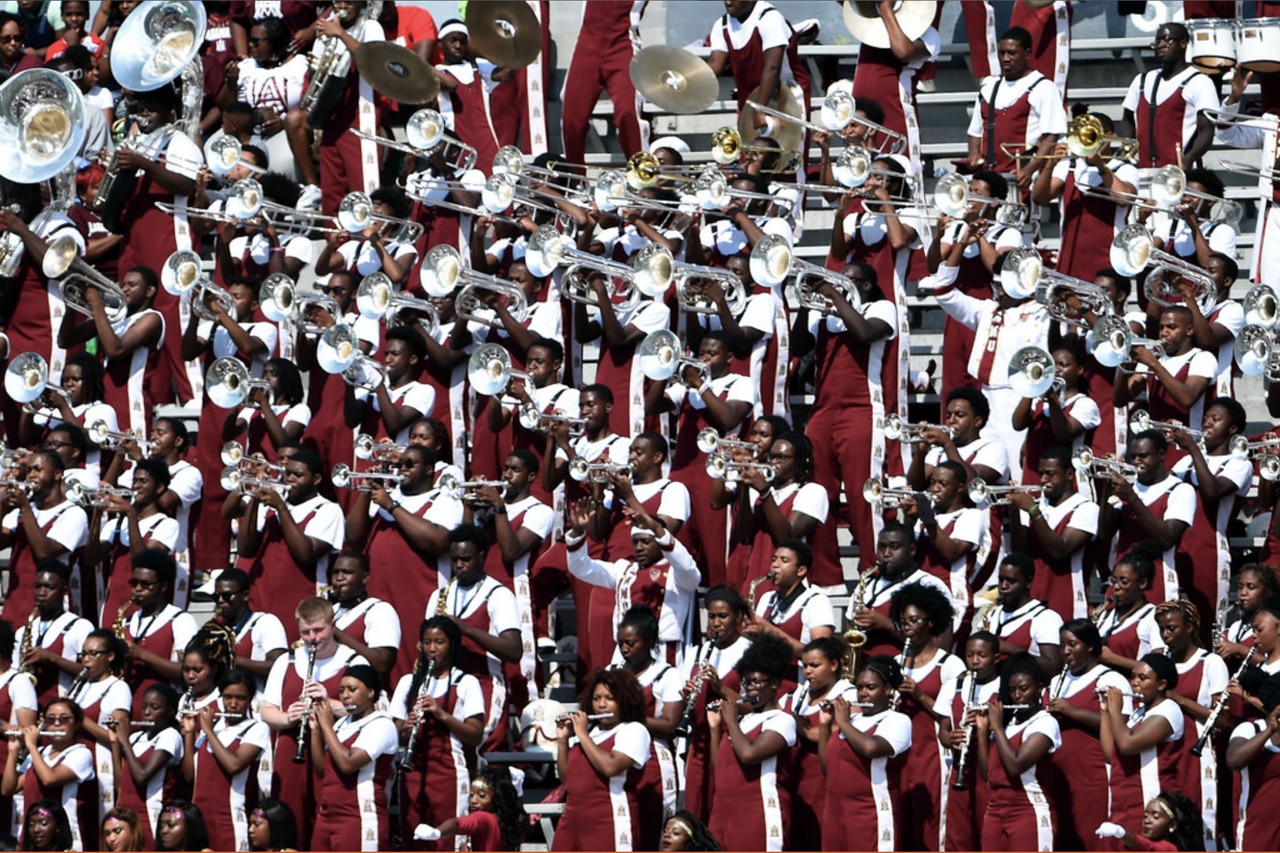
The Alabama A&M band performs during a NCAA college football game at Legion Field in Birmingham, Ala., Saturday, Sept. 2, 2017. Mark Almond/AL.com.
- 4. Tuskegee University is home of the first nursing baccalaureate program in Alabama and one of the oldest in the United States.
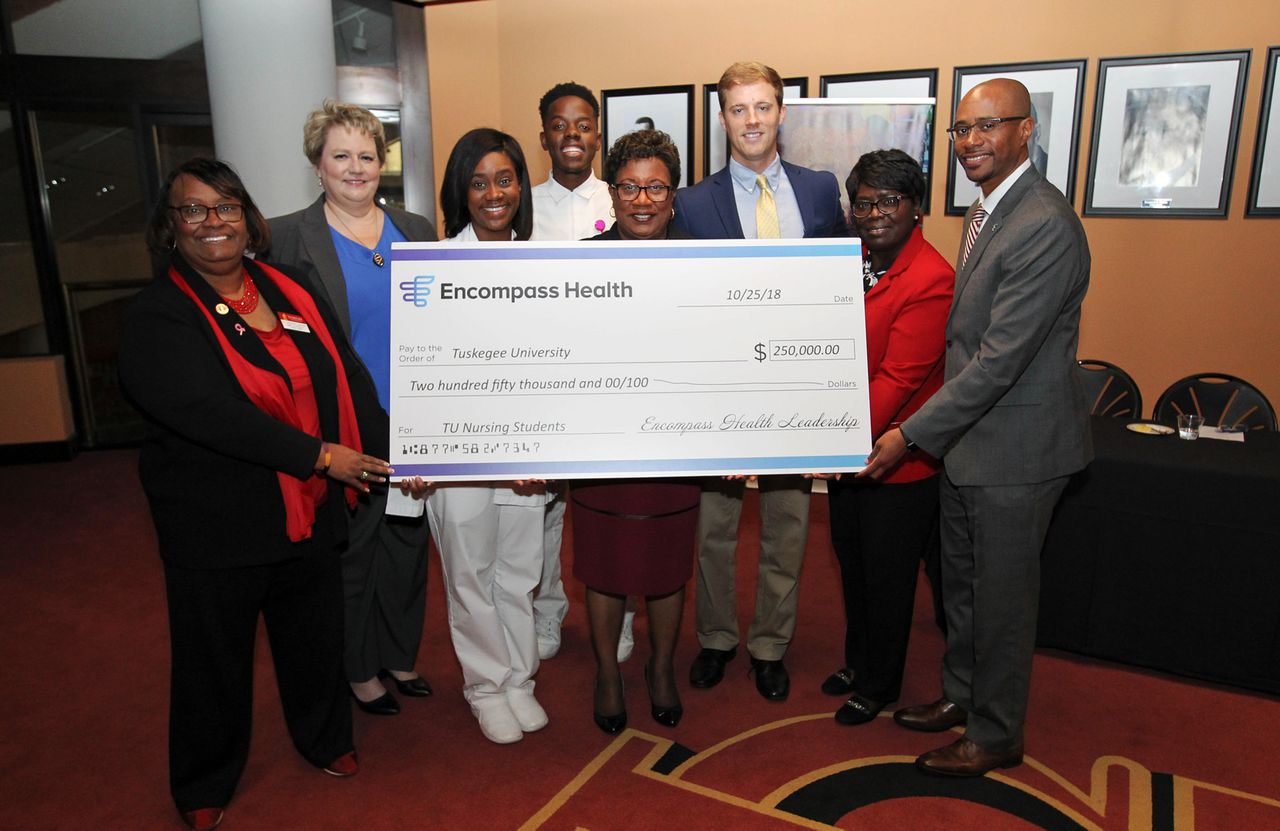
Encompass Health representatives commit $250,000 in scholarship support to Tuskegee University nursing and occupational therapy students. Pictured (left to right) Dr. Constance Hendricks, RN, dean, School of Nursing and Allied Health; Mary Ellen Hatch, Encompass Health vice president of nursing operations; Natasia Fanning, senior, nursing; Jalen Luter, senior, nursing; Dr. Charlotte P. Morris, senior executive management advisor; Ryne Phillips, fifth-year student, occupational therapy; Yolanda Turner, Encompass Health manager of inclusion and diversity; and Bryan Rogers, Encompass Health director of employee relations and diversity. Photo courtesy: Tuskegee University.
- Shelton State Community College is one of the largest 2-year colleges in Alabama, with over 4,500 students.
